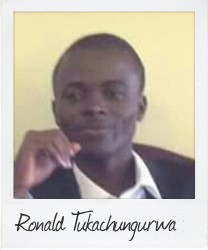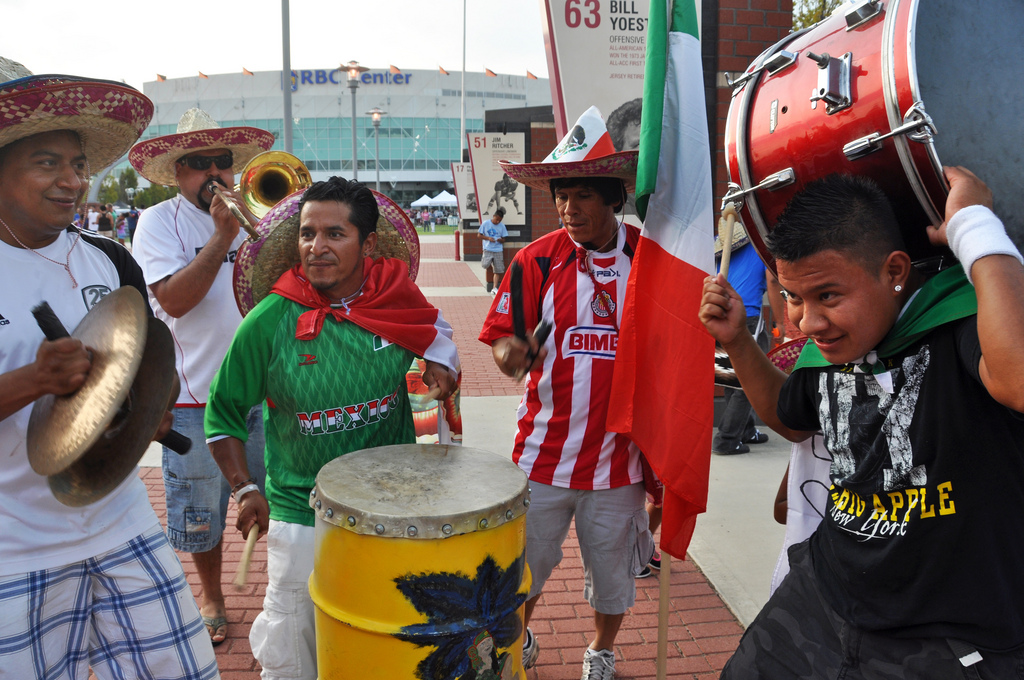“Sports can be a tool for creating peace”
August 27th, 2015 Sports is usually about rivalry and entertainment, but as Ronald Tukachungurwa, 23, a Correspondent from Kampala in Uganda writes, sports can also be the bridge to peace.
Sports is usually about rivalry and entertainment, but as Ronald Tukachungurwa, 23, a Correspondent from Kampala in Uganda writes, sports can also be the bridge to peace.
As I watched the BBC Africa Focus this item appeared:“…former French and Juventus football star David Trezguet is in Mali to forge peace with former combatants…”
I found this absolutely amazing – that sports can actually be used to achieve peace. Forget the Spanish “El Classico” between Barcelona and Real Madrid FC, or the old English rivalry between Arsenal and Manchester United FC, or the many clashes between rival soccer fans that have left many injured and others killed – sports is used to foster peace.
Sports is mainly used as a career, for leisure and entertainment, for business or for financial gain among other purposes, but little is thought of sports as a tool to enhance peace in society.
While many people create peace through diplomacy, treaty making, use of force and war, little effort is directed towards sports in search for peace. However, sports can be a unifying factor in the peacemaking process. Sports have long been idealized as a way to heal wounds, mend fences, and rise above differences among cultures and nations. From the Olympics to the World Cup, not only do sports transcend politics, but they also pave way for peace.[1]
In my community, during the last Eid-el-fitr celebrations two Ugandan factions, notorious for their rivalry for the leadership of the Muslim community, put their grievances aside and participated in a football game. These same two groups dispute the leadership of the current supreme Sheikh Mufti (leader of Muslims) and have been at loggerheads – seemingly irreconcilable.
Whether this achieved peace lasts remains to be seen in the future! Yet similar or related examples continue to happen around the globe, with various groups of people engaging in sports activities to create peace.
On the global scene, world leaders have used sports as a means to promote peace and unity, such as the 1971 Chinese-American reconciliation through ping-pong that ended two decades of unfriendly relations between the two superpowers[2], while in 2008 the presidents of Armenia and Turkey used a World Cup qualifying match between their national teams to reopen diplomatic dialogue.[3]
Organizations around the world also seek to eliminate hatred and bridge cultural divides by getting warring groups to play sports together, uniting Protestants and Catholics in Northern Ireland, blacks and whites in South Africa, Israelis and Palestinians, and Turkish and Greek factions in Cyprus.[4]
Former France and Juventus FC football international star David Trezguet visited Mali and Chad to promote peace through sports with former combatants. While such instances are few or even rare, they acknowledge the importance of sports towards the attainment of peace in society – perhaps one of the reasons that we have the Commonwealth Games, currently scheduled for Samoa. It is true sports make us love each other, and the power of sports to heal is stronger than hatred’s power to destroy,[5] but how I wish such spirit continues within the global community and the sports fraternity to ensure that peace thrives in society.
[1] http://www.theatlantic.com/magazine/archive/2010/01/can-sports-bring-world-peace/307872/
[2] http://news.bbc.co.uk/onthisday/hi/dates/stories/february/21/newsid_2728000/2728761.stm
[3] http://www.time.com/time/world/article/0,8599,1839199,00.html
[4] http://www.theatlantic.com/magazine/archive/2010/01/can-sports-bring-world-peace/307872/
[5] http://www.theatlantic.com/magazine/archive/2010/01/can-sports-bring-world-peace/307872/
photo credit: World Football Challenge – Guadalajara Chivas vs Juventus FC via photopin (license)
…………………………………………………………………………………………………………………
About me: I am a Ugandan lawyer, currently volunteering at the International Law Institute in Kampala. I am also the Ugandan Resident Director at the Africa Law Times, an online legal journal that promotes writings about events in Africa. In 2014, I was Uganda’s representative at the Commonwealth Moot Court Competition in London.
I am passionate about research writing, democracy and human rights, international law, criminal and humanitarian law, and I intend to become an international lawyer and policymaker.
…………………………………………………………………………………………………………………
Opinions expressed in this article are those of the author and do not necessarily represent the views of the Commonwealth Youth Programme. Articles are published in a spirit of dialogue, respect and understanding. If you disagree, why not submit a response.
To learn more about becoming a Commonwealth Correspondent please visit: http://www.yourcommonwealth.org/submit-articles/commonwealthcorrespondents/
…………………………………………………………………………………………………………………




